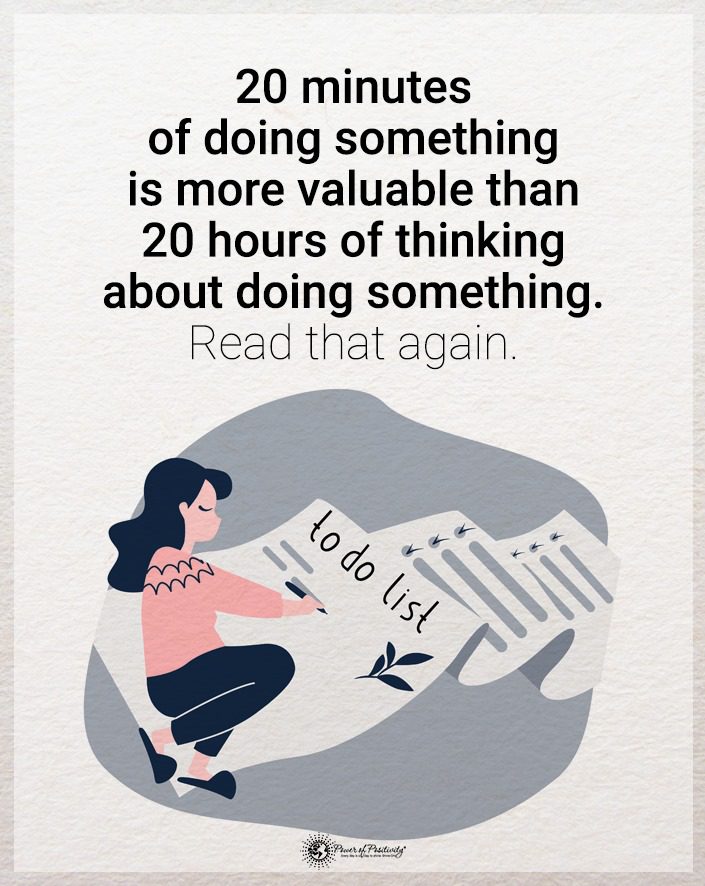To be “successful” is not subject to society’s definitions, but your own; whether or not you achieve what you’ve set out to do. How we manage our time often determines whether we succeed in achieving our purpose. So developing excellent time management habits becomes an essential key to success.
“I must govern the clock, not be governed by it.” – Golda Meir, 4th Prime Minister of Israel
Ms. Golda Meir certainly knew how to “govern the clock,” taking over as Prime Minister during a turbulent time in Israel’s history. The above quote concisely explains productivity using just eight words.
Different as we are, we all have something in common: the number of hours, minutes, and seconds in a day (24, 1,440, 86,400, respectively). How we use this time is up to us – we can either leverage or waste it.
What choice will you make? Will you leverage the time needed to fulfill your goals, or will you wander about aimlessly?
No matter how “put together” we think we are, everyone needs an occasional reminder of ways to manage time productively. One aspect of time management is understanding what not to do, which segues into the topic of this article.
*Please note that this is written for individuals who do not have ADHD or high-functioning autism. It is not intended to be used as a guide for individuals with these conditions, as their experiences and challenges may differ significantly. Suppose you or someone you know has ADHD or high-functioning autism. In that case, it is important to work with a mental health professional or a qualified healthcare provider to develop strategies that are tailored to your individual needs and circumstances.
Here are 12 unproductive habits that successful people avoid:
1. Giving themselves too much work
While happy, successful people often have a good work ethic, they also know their limitations well. Allowing yourself to become weighted down with voluntary commitments is not a good time-management skill.
Know your limits – everyone has them.
2. Technology distractions
We can spin Golda Meir’s quote a bit and come up with some good advice: “I must govern the technology, not be governed by it.”
It’s almost embarrassing how attached people have become to e-devices. Productive people don’t spend hours on Facebook and certainly don’t keep their phones on full volume while working.
Just be smart and responsible with tech. Exercise some self-discipline in your internet habits.
3. Not having a plan
“Failing to plan is planning to fail.” This quote is overused and sometimes annoying – but it doesn’t make it untrue. Planning avoids wasting energy on “what should I do?” thinking.
A plan doesn’t require excessive detail – a simple outline of “to-do’s” works fine.
4. Not being focused
Constantly shifting your priorities is not a good habit. A focused individual knows the first, second, and third things to be done on any given day.
Substitute chaos for order by remaining focused.
5. Working too late (one of the worst habits!)
We’re not talking about hours imposed by your employer but on yourself. Working late can happen occasionally, but you may want to look at your schedule if you’re always up late getting something done. (If you’re more productive in the evening, that’s cool, long as you get some good sleep.)
6. Leaving things unfinished
Productive and successful people are great at finishing things.
Philip Stanhope, an 18th-century British statesman who served as the 4th Earl of Chesterfield, once wrote to his son: “Know the true value of time; snatch, seize, and enjoy every moment of it. No idleness, no laziness, no procrastination; never put off till to-morrow what you can do to-day.”
7. Poor listening
Being inattentive or dismissive of new opinions or ideas is a bad habit. This often happens because we think we know more than we do.
Actively listen and pay attention; both skills will allow you to accumulate knowledge faster than most others.
8. Going it alone
This point will make introverts shudder. But not spending enough time with others to converse or collaborate may lead to missed opportunities. Not collaborating implies to others that you prefer “going it alone,” or putting too much work on your shoulders.
9. Resting on your laurels
In other words, not trying to learn anything new. Our brain is tremendously powerful, but we must use it regularly and wisely.
Scientists have discovered that neuroplasticity – the growth of neural networks within the brain – is a fact. The only limitations we have to learn, grow and adapt are self-imposed. Give your brain a daily challenge.
10. Pointless meetings
It’s not uncommon for successful people to be in some leadership role. If you research some of the most prominent politicians, businessmen/businesswomen, etc., you’ll notice that they don’t speak unless there’s something to be said.
And they certainly don’t organize hour-long meetings that waste the time of all involved.
11. Being disorganized
Organized doesn’t necessarily mean “neat and tidy,” but whether your stuff – including your “mental files” – are in order and accessible.
You are wasting a lot of time if you’re constantly looking for something or scrambling around to get what’s needed. Find an organizational method that works for you and stick with it.
12. Allowing unnecessary interruptions
Does anyone else find unnecessary intrusions aggravating? *V
When we permit unnecessary interruptions, we engage in two unproductive behaviors. First, we effectively disengage our mind from where it should be – in our work. Second, it’s a huge waste of time. Various studies show that it takes the average person 25 minutes to return to the original task once disrupted.
Quick solutions: get comfortable with saying “no” or “I’m working,” put up a notice (on your desk, cubicle, etc.), set aside a block of time to address things that may disrupt your day.
















 Community
Community

